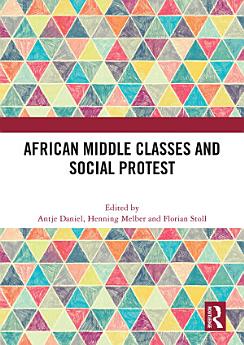African Middle Classes and Social Protest
About this ebook
Initially viewed through a narrow economic lens focused on income thresholds, the concept of an "African middle class" has evolved into a rich field of inquiry. This collection moves past superficial analyses to explore the lived experiences, political orientations, and social consciousness of these diverse groups. Through meticulously researched case studies spanning multiple countries, contributors from sociology, anthropology, and political science reveal the fragile and contradictory nature of middle-class formation in Africa. The volume interrogates how factors beyond economic criteria—including education, consumption patterns, cultural capital, and political engagement—shape class identity and social movements.
This essential text demystifies uncritical notions of "African middle classness" while providing empirical depth to our understanding of how these emerging social segments navigate complex sociopolitical landscapes. Scholars and students of development studies, African Studies, and class analysis will find this collection indispensable for understanding the intersection of class formation and political consciousness in contemporary Africa.
The chapters in this book were originally published as a special issue of Journal of Contemporary African Studies.
About the author
Antje Daniel is Senior Researcher at the Department of Development Studies at the University of Vienna, Austria, and is affiliated with the University of Nuernberg-Erlangen and the Center of Social Change in Johannesburg, South Africa.
Henning Melber is Extraordinary Professor at the University of Pretoria, South Africa, and the University of the Free State in Bloemfontein, South Africa; Senior Research Fellow with the Institute of Commonwealth Studies of the University of London; and a Resident Associate with the Nordic Africa Institute in Uppsala, Sweden.
Florian Stoll is Postdoctoral Researcher at the University of Bayreuth, Germany. He is also a Faculty Fellow at the Center for Cultural Sociology, Yale University, United States.

